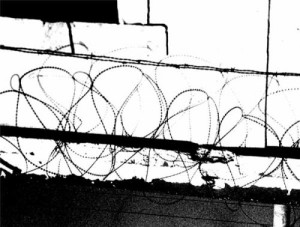By Andrew Kilpinen
On February 24, 2015, the 4th Circuit affirmed the Western District of Virginia’s judgment denying Almaz Nezirovic’s (“Nezirovic”) petition for a writ of habeas corpus in the published opinion of Almaz Nezirovic v. Gerald Holt. The 4th Circuit held that Nezirovic’s extradition was neither time-barred nor precluded by the political offense exception under the Treaty Between the United States and Serbia for the Mutual Extradition of Fugitives from Justice (“Treaty”).
Nezirovic Tortured Civilians As Internment Camp Guard in Former Yugoslavia
Nezirovic served as a prison guard at the Rabic internment camp in Bosnia and Herzegovina in 1992 shortly after the former Socialist Federal Republic of Yugoslavia collapsed. In 1993, the Doboj Police Department of Bosnia issued a criminal report against Nezirovic alleging that as a prison guard he subjected civilians to torture and inhuman treatment. Nezirovic entered the United States in 1997 as a war refugee. Pursuant to a 2003 order filed by a judge in Bosnia and Herzegovina, Bosnian authorities requested in 2012 that Nezirovic be extradited pursuant to the Treaty.
Nezirovic Appealed District Court’s Writ of Habeas Corpus Denial
A magistrate judge conducted an extradition proceeding and found that there was sufficient evidence that a crime was committed in Bosnia, that if committed in the United States the actions would have been criminal, and Nezirovic is the fugitive sought. Nevirovic’s petition for a writ of habeas corpus with the Western District of Virginia was denied. This appeal followed.
Extradition Not Time-Barred Under Indefinite Limitations of Torture Act
Nezirovic argued that the Treaty prohibits extradition for offenses that would be time-barred in the United States. The Court found war crimes against civilians under the Torture Act, with indefinite limitation, to be the most analogous substantive offense under United States law as the charged offense in Bosnia. Nezirovic argued that the alleged crimes were committed two years before the Torture Act was enacted, and so the Court should apply the five-year statute of limitations related to assault. The Court rejected Nezirovic’s argument under the pretense that the law to be applied is that which is in place at the time the extradition request is made, not the law in effect when Nezirovic allegedly committed the acts. The Court dismissed any ex post facto concerns because the Supreme Court has made clear that U.S. Constitutional protections do not extend to foreign prosecutions.
Nezirovic’s Actions Were Not Political Offenses Exempt From Extradition
Next, Nezirovic argued that his acts were “political offenses” and, as such, exempt from extradition under the Treaty. The Court considered whether Nezirovic’s actions were objectively political in nature to determine if such actions were “relative” political offenses incidental to or in furtherance of a violent political uprising. The Court found, after considering the totality of the circumstances, that Nezirovic’s actions were not political because his victims were citizens.
The 4th Circuit affirmed the district court’s decision to deny Nezirovic’s extradition certification challenge.

